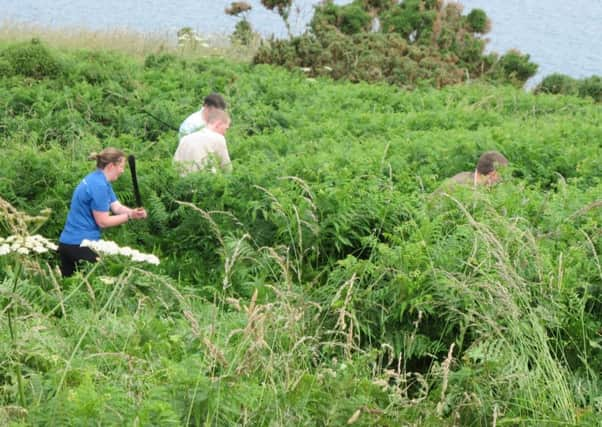Breaking back of bracken needs brains and brawn
This article contains affiliate links. We may earn a small commission on items purchased through this article, but that does not affect our editorial judgement.


Dealing with the bracken problem, Scottish Land & Estates (SL&E) and a commercial firm Oakland Biofuels are putting on a series of demonstrations where the fern is not only controlled but it is turned into fuel – either liquid biofuels or biomass pellets.
Speaking prior to the events, Douglas McAdam, chief executive of SL&E, said, “The scourge of bracken, the fast growing and invasive fern, presents a persistent problem to hill farmers and upland managers and tackling it can be a costly and time-consuming process.
Advertisement
Hide AdAdvertisement
Hide Ad“Although the growth of bracken is a standard problem, it is still one that causes many a headache to land managers.
“Spraying bracken from the air has been a typical solution for farmers and estates but businesses are constantly looking for ways that they can move forward in their approach.”
The demonstrations will showcase a multitude of equipment from continental Europe using the latest in cutting-edge technology. The first of two demonstrations will be Annandale Estates, St Ann’s, Lockerbie, on Wednesday 7 September. The second event will be held at Atholl Estates, Blair Atholl, Perthshire on Friday 9 September. Both demonstrations which are free and open to the public will run from 10am until 4pm.
McAdam added that, in dealing with the problem, a balance had to be struck between meeting the needs of the business, maintaining the correct level of habitat conservation and ensuring that visitors to farmland and estates could enjoy upland areas to their fully potential.
Jeremy Oakley, director of Oakland Biofuels, said: “Effective bracken control across upland Scotland is a challenge faced by many land owners and managers – not just in terms of cost but also from a practical point of view on what is often very steep and challenging terrain.”
The equipment his company is bringing to Scotland for the demonstrations normally operates on the challenging terrain of the high Alps and, as such, has a proven safe and effective harvesting capability.
He believed managing and controlling bracken throughout the UK could bring far reaching benefits to rural areas not only from an employment and sustainability point of view but in being able to produce renewable energy and biofuel.
He also pointed to reducing the reliance on agrochemicals which are currently used to control bracken as well as other potential benefits from helping areas to return to natural environments, reducing the risk of wildfires and improving rural tourism.
“This series of demonstrations will show that there are now efficient and viable alternatives to leaving these areas to spread unchecked.”
